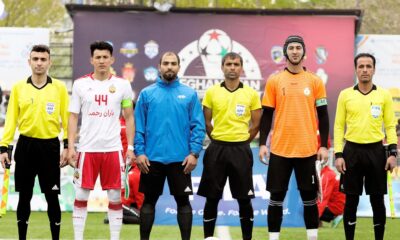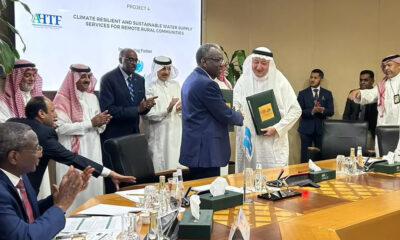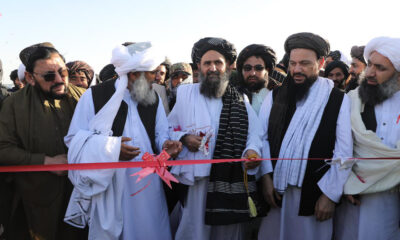Latest News
Baradar visits flood-hit areas of Uruzgan province
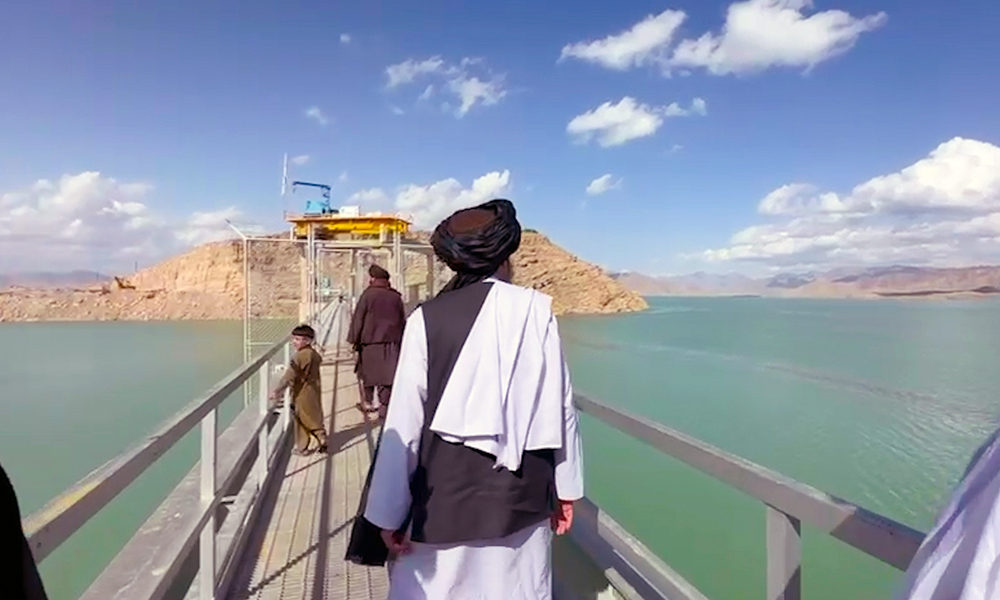
Mullah Abdul Ghani Baradar, the Deputy Prime Minister for Economic Affairs, visited flood-hit areas of Uruzgan province on Monday, April 15th, where he met with local officials and members of the public.
During his visit, Baradar assessed the impact of the floods and ordered necessary assistance to be provided.
He assured the people of the government’s commitment to supporting those affected by the disaster.
Emphasizing the importance of effective governance, Baradar urged provincial officials to prioritize the welfare of vulnerable citizens and underscored the sacrifices made by the people in establishing the Islamic system.
He also said the people had a right to a peaceful life under the Islamic Emirate.
Baradar also said the government had an obligation to promptly address the needs of citizens across the country in times of crises.
Residents of Uruzgan province in turn expressed their satisfaction with the responsiveness of civil and military authorities under the Islamic Emirate. They lauded the government’s intervention during times of need and expressed optimism about the elimination of hatred, ethnic biases, and hypocrisy under Islamic Emirate, heralding a new era of unity and stability for Afghanistan.
Baradar also visited Kajaki Dam in neighboring Helmand province on Monday where he praised officials for work done on the dam.
He said the Kajaki Dam project was of national value and vital to the well-being of the country.
Baradar said that due to recent droughts and the lack of water in dams, the level of electricity production had also decreased, but that this year, thanks to heavy rains in the country, the water levels had increased and many of the dams, including Kajaki Dam are overflowing.
He said this will boost harvests this year and that electricity production in the country will also increase.
Kajaki Dam is one of the largest dams in the country and was was built in the Kajaki district of Helmand province to control seasonal floods on the Helmand River, irrigate agricultural lands and generate electricity.
Latest News
Minister of mines says minerals must be processed in Afghanistan before exported

Acting Minister of Mines and Petroleum Shehabuddin Delawar has said in a meeting with officials of a Chinese company that the export of raw minerals for processing abroad is no longer allowed.
He said the ministry will work with foreign mining companies as long as they also process the minerals in Afghanistan.
Delawar said this during a meeting with China’s state-owned company MCC Holoda, and Chinese officials from the company contracted to extract copper from Mes Aynak.
The Ministry of Mines and Petroleum said in a statement that MCC Holoda is one of the largest mining and processing companies in China for copper, lead and zinc.
According to the statement, the company has expressed an interest in investing in copper, lead and zinc mines in Afghanistan.
Delawar welcomed their interest and said there are lead and zinc mines in Bamyan, Kandahar and Ghor provinces, and if the company agrees to process minerals inside Afghanistan, the ministry will cooperate with it.
Delawar also discussed the Mes Aynak copper project and called for acceleration of work at the mine.
Latest News
Afghanistan Humanitarian Trust Fund report highlights problems tackled
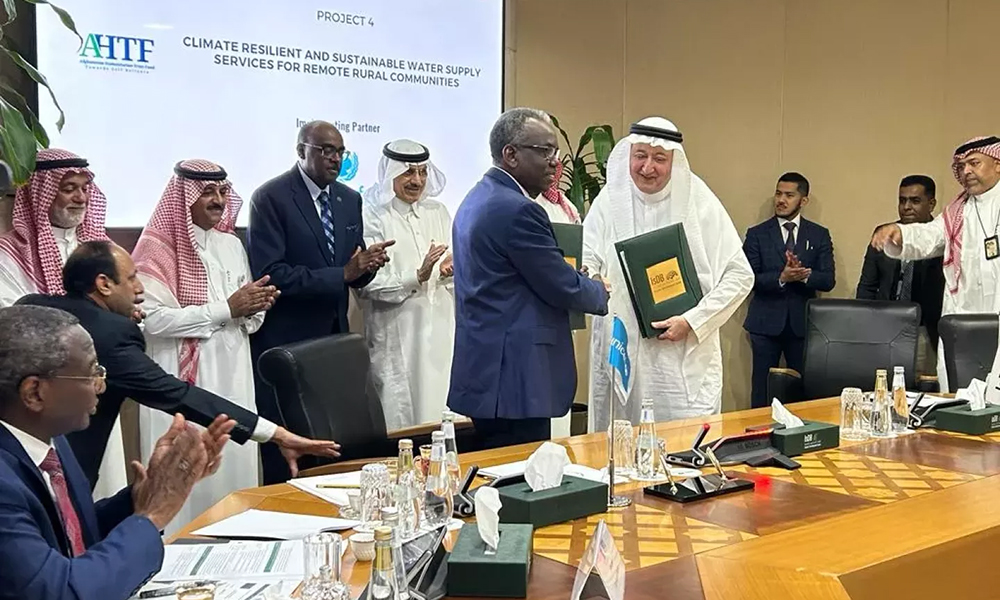
Mohammad Jamal Alsaati, Special Advisor to IsDB President and IsDB Coordinator for Afghanistan Humanitarian Trust Fund (AHTF), said this week that 14 projects, signed in 2023, have materialized at a total cost of $35.35 million.
He said in a statement issued Sunday that of this, $24.14 was from contributions from AHTF with a further $12.21 million provided by implementing partners and other international organizations.
Alsaati said all the services provided have created job and capacity building opportunities for the people of Afghanistan and that as of March 2024, pledges to the fund totaled almost $35 million, with more funding expected.
Alsaati’s comments were in a statement issued by the Islamic Development Bank, (IsDB), after it released the first comprehensive report on the achievements of the AHTF.
The report highlights the coordinated efforts by the IsDB, its partners, and stakeholders towards “Promoting Self Reliance and Resilience” in Afghanistan.
The AHTF’s mission is to provide initial humanitarian aid but then to prioritize development and self-reliance to move beyond emergency assistance – promoting reconstruction, empowerment and sustainable development.
IsDB President and Group Chairman, Muhammad Al Jasser meanwhile said following the release of the report that after receiving generous contributions, the AHTF “sprung into action, delivering essential aid to Afghanistan’s most vulnerable communities.”
He said the fund was able to tackle food insecurity, offer child nutrition programs, provide healthcare, innovative education, clean water, sanitation and hygiene services.
“Our projects are making a tangible difference on the ground,” Jasser said.
The Secretary General of the Organization of Islamic Cooperation (OIC), Hissein Brahim Taha also reacted to the report and said: “We are very pleased to see several humanitarian and development-focused projects are underway in Afghanistan – driven by the IsDB in collaboration with its regional and global partners.
“But much work still lies ahead, so we look forward to further help and support from our Member States, in addition to continued financial assistance for the AHTF from international aid and relief agencies,” said Taha.
The fund was established at a Council of Foreign Ministers of the OIC on 19th December 2021.
Latest News
Baradar visits Pashdan Dam, as work on project resumes
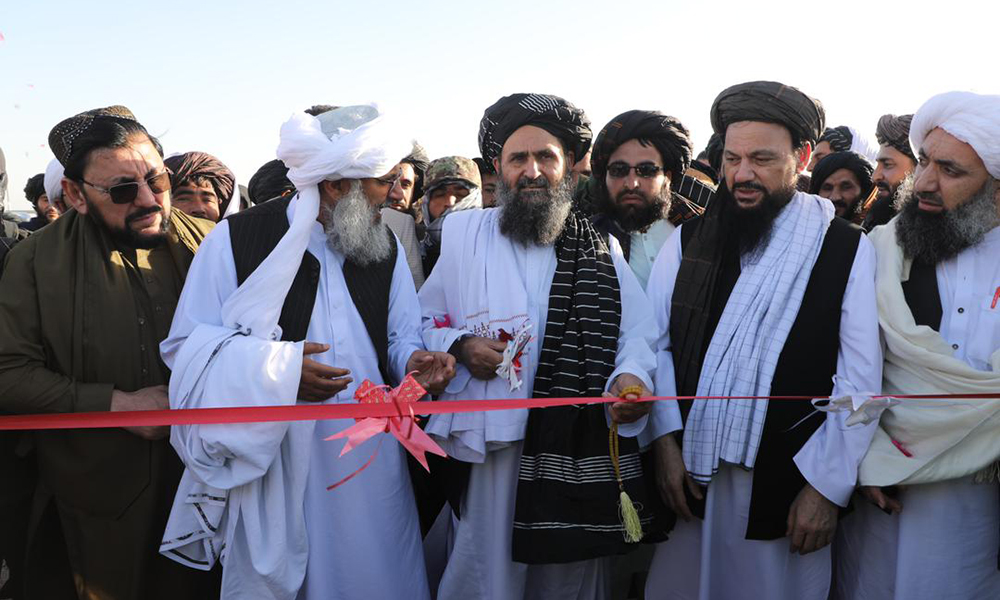
Mullah Abdul Ghani Baradar, deputy prime minister for economic affairs, has said the Pashdan Dam in Herat province is a key national project that the Islamic Emirate is committed to completing as soon as possible.
Speaking at an event marking the resumption of construction on this hydroelectric dam, which was started more than 10 years ago, Baradar said building dams was a priority for the Islamic Emirate.
Once complete the Pashdam Dam will not only generate electricity but also irrigate about 65,000 hectares of agricultural land, in turn providing work to thousands of people.
The dam will cost an estimated $117 million once finished and according to officials, at least 85% of work has been completed.
Officials expect the dam to be operational by the end of this solar year.
The construction of Pashdan Dam is being carried out by a domestic company in cooperation with an Azerbaijani company.
Engineers said the dam will mostly be used for agriculture purposes and for potable water. They also said about 73 kms of canals will be built to irrigate land.
This dam will store 54 million cubic meters of water. Currently, about 400 people are employed to work on the project.
-

 Sport3 days ago
Sport3 days agoAfghanistan beat Iraq 5-3, inch closer to Futsal World Cup berth
-

 Regional3 days ago
Regional3 days agoNew UK sanctions target Iranian drone industry
-

 Regional4 days ago
Regional4 days agoTurkey accuses U.S. of double standards over Gaza in rights report
-

 Latest News3 days ago
Latest News3 days agoEU allocates 17 million euros to support Afghans on the move
-

 Latest News2 days ago
Latest News2 days agoPakistan extends registered Afghan refugees’ stay till June 30
-

 World4 days ago
World4 days agoUS student protests over Gaza intensify despite arrests
-

 Regional2 days ago
Regional2 days agoChina to host Hamas, Fatah for Palestinian unity talks
-

 Sport1 day ago
Sport1 day agoAfghanistan qualify for FIFA Futsal World Cup for first time ever


